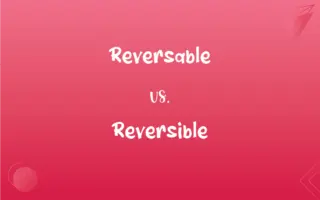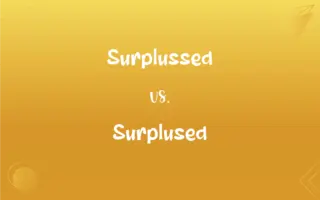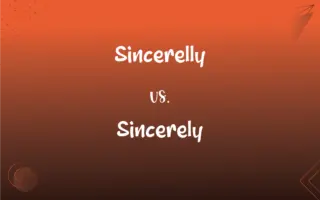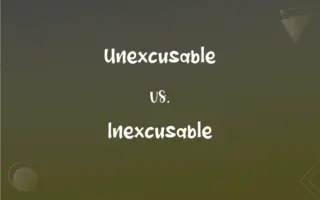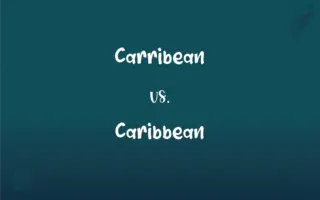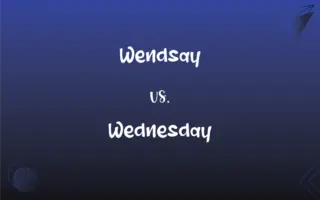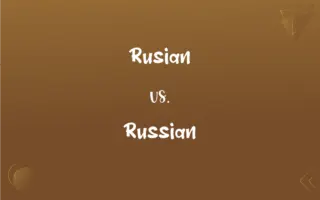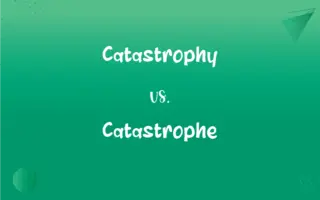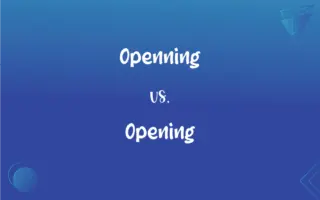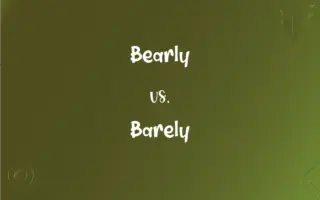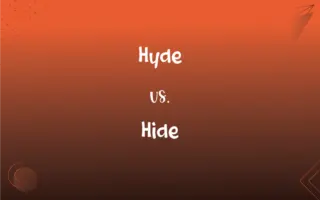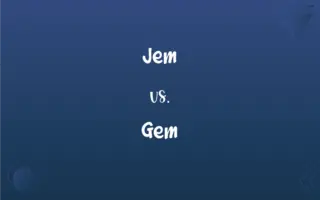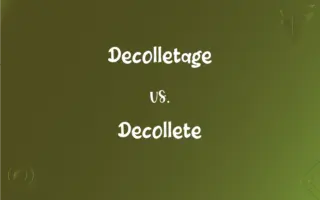Cheeze vs. Cheese: Mastering the Correct Spelling
Edited by Aimie Carlson || By Janet White || Updated on March 14, 2024
"Cheeze" is an incorrect spelling, while "Cheese" is the correct spelling referring to a dairy product made from milk curd.
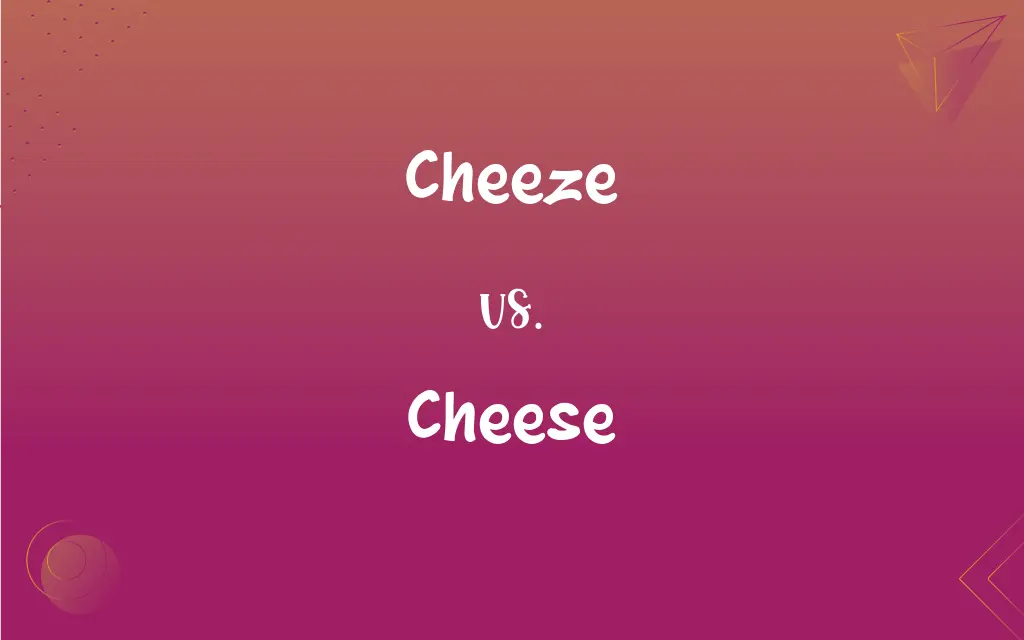
Which is correct: Cheeze or Cheese
How to spell Cheese?

Cheeze is Incorrect

Cheese is Correct
ADVERTISEMENT
Key Differences
Associate the word "cheese" with its French counterpart "fromage"; neither has a "z."
Think of the rhyme, "Cheese with ease, not Cheeze with a zee."
Remember that "cheese" is the term you see on product labels, not "cheeze."
Recall that cheese, like geese, ends in "ese".
Imagine a wedge of cheese with the correct spelling carved on it.
ADVERTISEMENT
Correct usage of Cheese
I love grilled cheeze sandwiches.
I love grilled cheese sandwiches.
She added too much cheeze to the recipe.
She added too much cheese to the recipe.
This cheeze tastes a bit odd.
This cheese tastes a bit odd.
Can you buy some cheeze at the store?
Can you buy some cheese at the store?
He can't eat cheeze because he's lactose intolerant.
He can't eat cheese because he's lactose intolerant.
Cheese Definitions
A food made from milk curd and often aged.
She added cheese to her sandwich.
A pressed curd of milk, separated from the whey.
The pizza had extra cheese on top.
A dairy product varying in textures and flavors depending on its processing.
Blue cheese has a distinctive taste.
A solid food made by coagulating milk's protein casein.
Cheese is often paired with wine.
A moldable substance derived from milk fermentation.
There are many types of cheese worldwide.
A solid food prepared from the pressed curd of milk, often seasoned and aged.
A molded mass of this substance.
Something resembling this substance in shape or consistency.
An important person.
To stop.
(uncountable) A dairy product made from curdled or cultured milk.
(countable) Any particular variety of cheese.
(countable) A piece of cheese, especially one moulded into a large round shape during manufacture.
A thick variety of jam (fruit preserve), as distinguished from a thinner variety (sometimes called jelly)
A substance resembling cream cheese, such as lemon cheese
That which is melodramatic, overly emotional, or cliché, i.e. cheesy.
Money.
In skittles, the roughly ovoid object that is thrown to knock down the skittles.
A fastball.
A dangerous mixture of black tar heroin and crushed Tylenol PM tablets. The resulting powder resembles grated cheese and is snorted.
Smegma.
(technology) Holed pattern of circuitry to decrease pattern density.
A mass of pomace, or ground apples, pressed together in the shape of a cheese.
The flat, circular, mucilaginous fruit of the dwarf mallow (Malva rotundifolia) or marshmallow (Althaea officinalis).
A low curtsey; so called on account of the cheese shape assumed by a woman's dress when she stoops after extending the skirts by a rapid gyration.
(slang) Wealth, fame, excellence, importance.
The correct thing, of excellent quality; the ticket.
These cheroots are the real cheese.
To prepare curds for making cheese.
(technology) To make holes in a pattern of circuitry to decrease pattern density.
(slang) To smile excessively, as for a camera.
(slang) To stop; to refrain from.
Cheese it! The cops!
Cheese your patter! (= stop talking, shut up)
(slang) To anger or irritate someone, usually in combination with "off".
All this waiting around is really cheesing me off.
To use a controversial or unsporting tactic to gain an advantage (especially in a game.)
You can cheese most of the game using certain exploits.
To use an unconventional, all-in strategy to take one's opponent by surprise early in the game (especially for real-time strategy games).
(photography) Said while being photographed, to give the impression of smiling.
Say "cheese"! ... and there we are!
The curd of milk, coagulated usually with rennet, separated from the whey, and pressed into a solid mass in a hoop or mold.
A mass of pomace, or ground apples, pressed together in the form of a cheese.
The flat, circular, mucilaginous fruit of the dwarf mallow (Malva rotundifolia).
A low courtesy; - so called on account of the cheese form assumed by a woman's dress when she stoops after extending the skirts by a rapid gyration.
A solid food prepared from the pressed curd of milk
Erect or decumbent Old World perennial with axillary clusters of rosy-purple flowers; introduced in United States
Used in the imperative (get away, or stop it);
Cheese it!
Wind onto a cheese;
Cheese the yarn
Cheese Sentences
Nachos aren't complete without melted cheese on top.
Cheese is often used in salads to add protein and flavor.
Grilled cheese sandwiches are simple to make and delicious.
Macaroni and cheese is a favorite dish among kids and adults alike.
Cottage cheese is soft and lumpy, and some people like to eat it with fruit.
Cheese can be used to add flavor to soups and sauces.
String cheese is a fun snack that you can pull apart and eat.
Cheese curds are a fun snack; they squeak when you bite into them.
You can make a cheese sauce to pour over vegetables.
Some people prefer cheese that is aged because it has a stronger taste.
Cheese making is an ancient craft that dates back thousands of years.
Ricotta cheese is often used in Italian dishes like lasagna.
Sliced cheese is convenient for making sandwiches.
Cheese fondue is a dish where you dip bread into melted cheese.
Feta cheese is crumbly and often used in Greek salads.
Cheese is sometimes smoked to add flavor.
You can find cheese in almost every part of the world, with each region having its own special types.
Cheese can be stored in the refrigerator to keep it fresh.
Cheese Idioms & Phrases
Cheese and chalk
Used to describe two things that are completely different from each other.
Comparing their two singing styles is like comparing cheese and chalk.
As different as chalk and cheese
Highlighting a strong difference between two things.
The twins might look alike, but their personalities are as different as chalk and cheese.
To make cheese
To earn money.
He's been working hard to make cheese and save for a car.
Cut the cheese
Slang for passing gas.
Someone cut the cheese in the car and everyone laughed.
Hard cheese
An expression of sympathy for someone's misfortune.
You didn't get the job? Hard cheese, but don't give up.
Cheese it
A slang term meaning to stop or to run away.
Cheese it, the cops! he whispered when he saw the police approaching.
Say cheese
A phrase used to tell someone to smile when taking a photograph.
The photographer said, Say cheese, and everyone smiled.
The big cheese
An important person, usually the boss.
In our company, the CEO is the big cheese.
More cheese, less whiskers
A phrase suggesting to focus on the positives rather than the negatives.
When giving feedback, remember it's better to offer more cheese and less whiskers.
FAQs
Why is it called Cheese?
The term "Cheese" comes from the Old English word "cēse," which is of Germanic origin and related to the Dutch word "kaas" and the German word "Käse".
Which vowel is used before Cheese?
The vowel that is commonly used before "cheese" depends on the context, but "a" is often used as in "a cheese."
What is the verb form of Cheese?
There isn't a widely accepted verb form of "cheese." However, in slang, "to cheese" can mean to smile broadly, referencing the phrase "say cheese" for photographs.
What is the pronunciation of Cheese?
Cheese is pronounced as /tʃiːz/.
Which conjunction is used with Cheese?
Conjunctions such as "and" can be used with cheese, for instance, "crackers and cheese."
Which preposition is used with Cheese?
"Of" is commonly used with cheese, as in "a slice of cheese."
What is the root word of Cheese?
The root word for "cheese" is the Old English word "cēse."
What is the singular form of Cheese?
The singular form is "cheese."
Is Cheese an adverb?
No, cheese is not an adverb.
What is the plural form of Cheese?
The plural form is "cheeses."
How many syllables are in Cheese?
There is one syllable in the word "cheese."
How do we divide Cheese into syllables?
The word "cheese" is not divided as it is a one-syllable word.
What is the opposite of Cheese?
There isn't a direct opposite of "cheese," as it is a specific food item.
What is the first form of Cheese?
The first form of the word "cheese" as a noun is simply "cheese."
Is Cheese a collective noun?
No, cheese is not a collective noun.
What is a stressed syllable in Cheese?
The entire word "cheese" is stressed as it is a single-syllable word.
What part of speech is Cheese?
Cheese is a noun.
What is the third form of Cheese?
Similarly, "cheese" does not have a third form, being a noun.
Is Cheese a negative or positive word?
Cheese is a neutral word; it is neither negative nor positive.
Is the word Cheese is imperative?
No, the word cheese is not imperative.
Is Cheese a noun or adjective?
Cheese is primarily used as a noun.
Is the Cheese term a metaphor?
The term "cheese" is not typically used as a metaphor but can be used metaphorically in various contexts.
What is another term for Cheese?
Another term for cheese could be "curdled milk product."
What is the second form of Cheese?
The word "cheese" does not have a second form as it is a noun and not a verb.
Which article is used with Cheese?
The articles "a" and "the" can be used with cheese, depending on the context.
Is Cheese an abstract noun?
No, cheese is a concrete noun as it refers to a physical substance.
Is Cheese a vowel or consonant?
The word "cheese" starts with a consonant.
Is Cheese a countable noun?
Yes, cheese can be a countable noun when referring to different types or varieties of cheese.
Which determiner is used with Cheese?
Determiners like "this," "that," "my," "a," and "the" can be used with cheese depending on the context.
How is Cheese used in a sentence?
In a sentence, cheese can be used as follows: "She sprinkled some cheese on her pasta."
About Author
Written by
Janet WhiteJanet White has been an esteemed writer and blogger for Difference Wiki. Holding a Master's degree in Science and Medical Journalism from the prestigious Boston University, she has consistently demonstrated her expertise and passion for her field. When she's not immersed in her work, Janet relishes her time exercising, delving into a good book, and cherishing moments with friends and family.
Edited by
Aimie CarlsonAimie Carlson, holding a master's degree in English literature, is a fervent English language enthusiast. She lends her writing talents to Difference Wiki, a prominent website that specializes in comparisons, offering readers insightful analyses that both captivate and inform.

